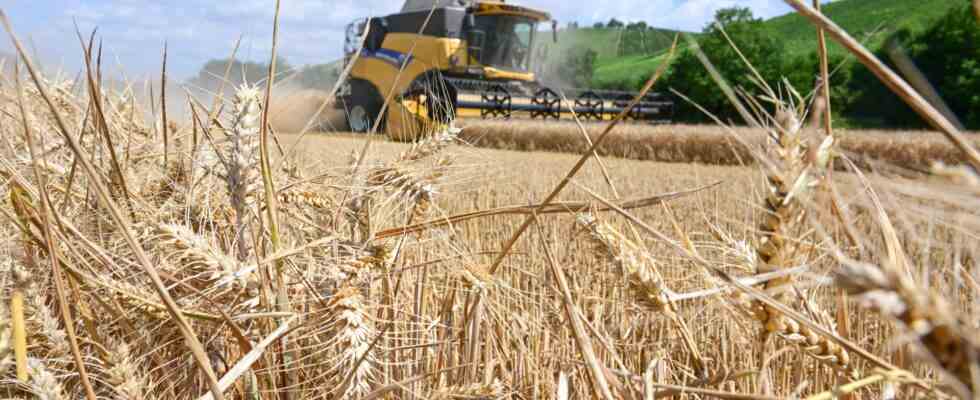Status: 06.08.2022 2:34 p.m
Germany should actually be growing less grain from 2023 – because of species protection. But in view of the delivery bottlenecks, Minister of Agriculture Özdemir now wants to make a change. The farmers’ association welcomes this, but demands more.
In view of the strained international agricultural markets as a result of the Ukraine war, farmers in Germany should be able to plant grain on more land than previously planned. According to a compromise proposal by Agriculture Minister Cem Özdemir (Greens), the new EU regulations on set-aside and crop rotation are to be suspended once in the coming year. Brussels had left the implementation of the requirements to the respective EU states.
Species protection versus food security
The background to this is EU regulations that will come into effect from 2023, according to which part of the agricultural land should serve to protect species. In addition, the cultivation of the same arable crop two years in a row on the same area should no longer be possible – for the purpose of soil protection.
According to the ministry, the mandatory set-aside will be suspended once in the coming year. Instead, agricultural cultivation should continue to be possible, “however – in line with the objectives of the Commission proposal – limited to the production of food”.
Plan does not affect corn or soybeans
This applies to grain crops – without corn -, sunflowers and legumes – without soybeans. In addition, the proposal only applies to the areas that were not already designated as fallow arable land in 2021 and 2022. “The existing biodiversity areas will thus continue to be protected and can provide their services for nature and species protection as well as sustainable agriculture,” says the ministry.
According to Özdemir, Russian President Vladimir Putin is playing with hunger – and he is doing this at the expense of the poorest in the world. At the same time, hunger is greatest where the climate crisis is already having serious consequences.
For me, therefore, every measure to solve a crisis must be checked to ensure that it does not exacerbate another.
Farmers’ association calls for further extension
The President of the German Farmers’ Association, Joachim Rukwied, welcomes the proposal in principle, but also criticizes it: “This decision was overdue and came at the last minute”. While Özdemir said the farms now know what they can sow in a few weeks, Rukwied said:
We farmers have already started planning cultivation for the coming year and need planning security.
The Farmers’ Association also criticized the current schedule: A suspension for one year is not enough from Rukwied’s point of view. In order to continue to ensure a secure food supply and to be able to react in times of crisis, all areas must be able to be used on which it makes agricultural sense. The federal states would now have to confirm this quickly.
Criticism also from Greenpeace
Approval for Özdemir’s proposal came from Baden-Württemberg and the FDP. Baden-Württemberg’s Minister of Agriculture Peter Hauk (CDU), who is also spokesman for the Union-led agricultural departments of the federal states, praised Özdemir for finally giving in. The deputy FDP parliamentary group leader in the Bundestag, Carina Konrad, made a similar statement. Now the regulations must be implemented quickly and with legal certainty, since the sowing is imminent.
The environmental organization Greenpeace accused Özdemir of giving in to pressure from the agricultural lobby.

